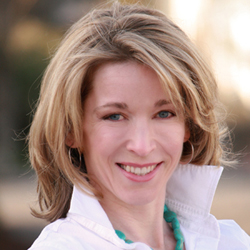Soul Matters – August 2014
There’s a meme going around these days called “Spiritual But Not Religious,”and it’s growing like gangbusters. (There is also the lesser-discussed “Religious But Not Spiritual,” which is a topic for another day.) Like all memes, it hops from one person to the next without great awareness of where it came from or what it means, so I thought it high time that we all get on the same page.
On the surface, “Spiritual But Not Religious”(or SBNR for short) delineates one who claims no affiliation with a particular spiritual dogma. People who identify as SNBR are sometimes referred to as “Spiritually Independent,”or my personal favorite, the “unchurched.”(Is this a noun? Verb? Adjective?)
SBNR says, “I’m not an atheist, but neither do I fit in a neat, well-defined box.”It says something, but not much. One never really knows what a person is saying when they say they are SNBR; it can prove a very interesting conversational rabbit hole to explore. Sometimes the rabbit hole is elaborate and deep, sometimes it is quite shallow. One never knows.
Let’s start with what SBNR is not: It is not donning crystals, buying every self-help book published, or paying for expensive retreats to Sedona to sit in an ersatz sweat lodge. These things may be part of one’s spiritual journey but they do not, in and of themselves, make one spiritual. In fact, they can often lead one down the slippery slope of spiritual materialism, which belongs more to ego than spirit and is a very shallow hole indeed.
To be Spiritual-But-Not-Religious is to be open to transcendent reality, meaning a belief or awareness of a reality beyond the five-sensory world. It holds that one is more than one’s body or mind or ego identity. It acknowledges the “beingness”of all things and believes that everything is an aspect of the One Thing: call it God, Spirit, the Universe, the Divine, Consciousness, or Love.
To be spiritual is to be in conscious relationship with one’s deeper Self, with the earth, and with the soul of all things seen and unseen. This relationship has no codified directive, no particular modality of worship, no intermediary. It is a relationship rooted in an internal, intuitive, personal experience of the All-That-Is. One discovers what one believes, rather than steps into a ready-made theology. It’s rather like the difference between brewing coffee at home or going to Starbucks for a mocha frappuccino.
You may be wondering, and rightly so, whether a religious person can’t also be spiritual, and the answeris yes: by a different definition. If one defines “spiritual”as expressing values of kindness and compassion and generosity, then yes, one can be religious (belonging to a particular faith) and spiritual.
The emphasis of Spiritual-But-Not-Religious, however, is a uniquely personal journey of discovery of one’s relationship to the ineffable. Religious denominations have very specific creeds that one must accept in order to be part of that community. Many—I dare say most—religions are outright exclusionary, believing their faith is the One and Only True Way; they have a world view of “us”and “them,”where spiritual sees only “us.”Exclusivity and spirituality are mutually exclusive.
Ultimately, whether you’re SBNR, Muslim, Baptist or Druid, what matters is not what you are, but who you are. Actions speak louder than labels. Anyone who is open-hearted, open-minded, and lives a life of loving-kindness, compassion, and generosity is AOK in my book.
KATE INGRAM, M.A., is a therapist, soul coach, and award-winning author. She’s unabashedly SBNR, a bit OCD, and quite fond of PBS. She was recently invited to join AARP, which made her LOL. For more, please go to www.katherineingram.com.
 KATE INGRAM, M.A., is a counselor, soul coach and author. Her first book, Washing the Bones: A Memoir of Love, Loss, and Transformation about her journey through grief and depression to spiritual awakening, was awarded a 2014 Nautilus Silver Medal and a 2014 Indie Book Award. To receive free monthly inspiration or to find out more about her work, please visit
KATE INGRAM, M.A., is a counselor, soul coach and author. Her first book, Washing the Bones: A Memoir of Love, Loss, and Transformation about her journey through grief and depression to spiritual awakening, was awarded a 2014 Nautilus Silver Medal and a 2014 Indie Book Award. To receive free monthly inspiration or to find out more about her work, please visit